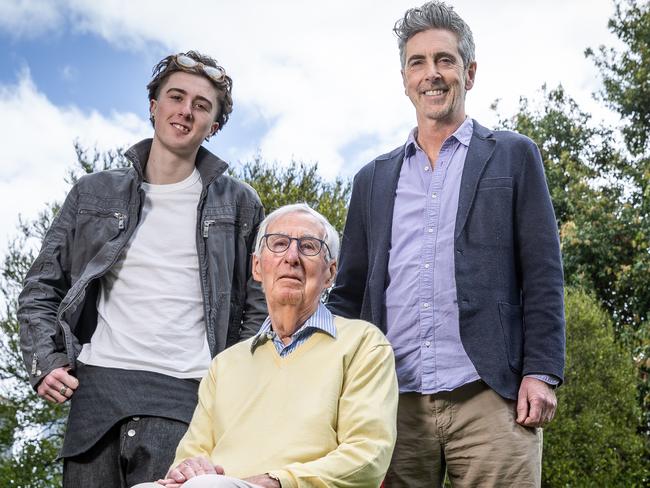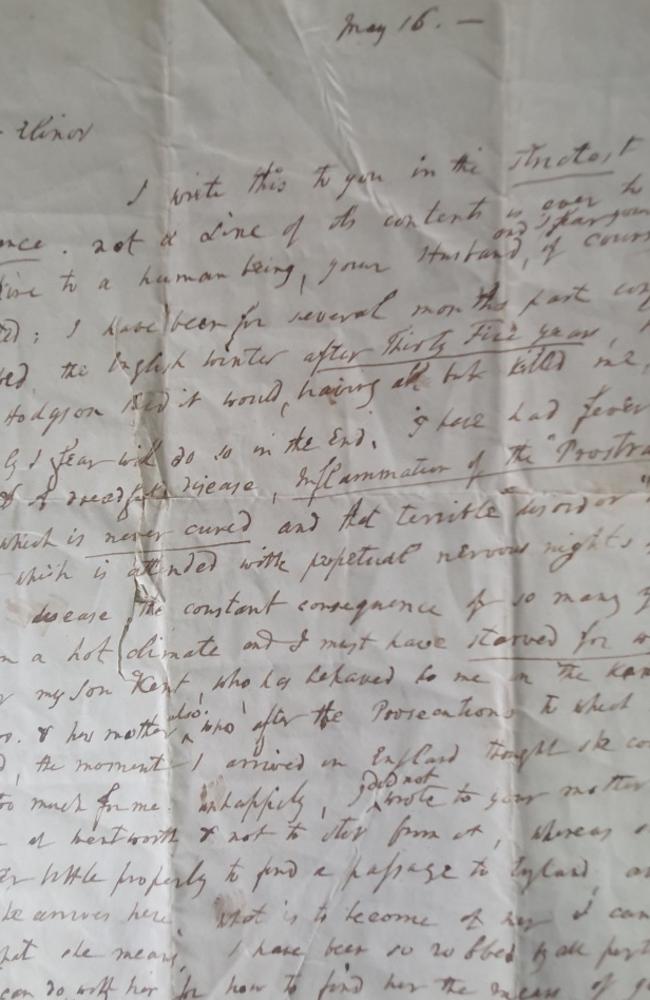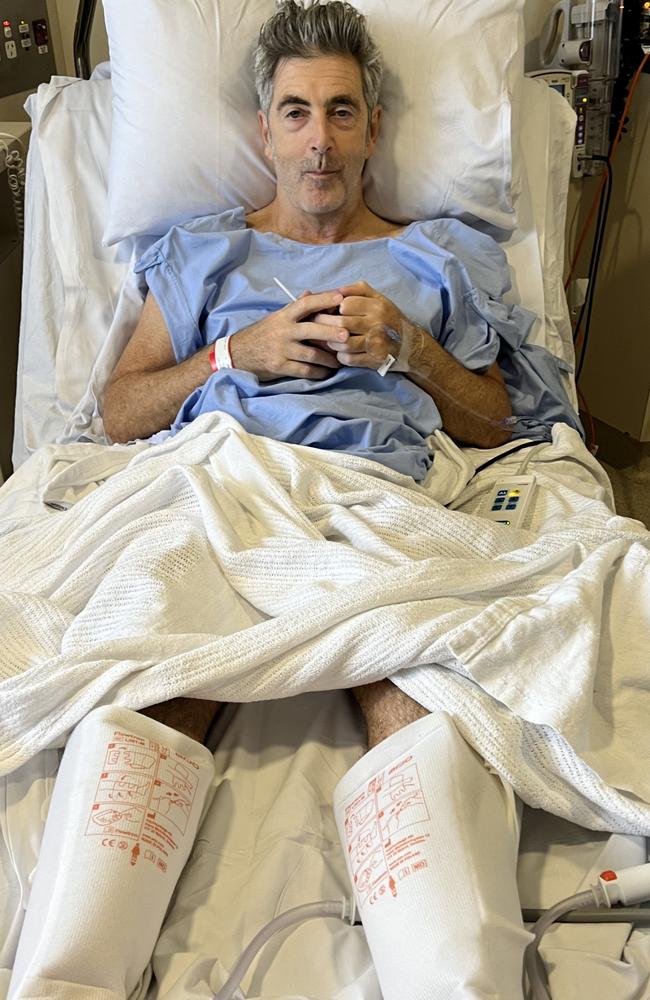The myths preventing blokes from having a lifesaving prostate check
When Robert Murray uniquely chronicled his health woes with what is today known as prostate cancer, he left his family a life-saving gift. More than 170 years later, we bust the myths about prostate screening.

Victoria
Don't miss out on the headlines from Victoria. Followed categories will be added to My News.
Colourful character Robert William Felton Lathrop Murray left his family the gift of a lifetime.
The landowner, soldier, convict and founder of the Hobart Town Gazette uniquely chronicled his health woes with what is today known as prostate cancer.
He was a man ahead of his time.
It would be another six years before a surgeon at The London Hospital described the first case of “a very rare disease” of the prostate.
More than 170 years and five generations later that insight has been a lifesaver for his great-great-grandson, Melbourne architect James Murray, 55.
Mr Murray was also diagnosed with prostate cancer, but says it was successfully treated with surgery because it was caught early.

And that can be traced to a letter dated 1847 by Robert Murray detailing his prostate problems, which may have also influenced the career choice of his great-great grandson, James Murray’s father Robin.
Robin Murray also lost his father Hugh to prostate cancer. He became an endocrinologist, the branch of medicine that studies diseases influenced by hormones. Prostate cancer grows by feeding on the male hormone testosterone.
These twists and uncanny turns led to what James Murray’s surgeon calls a spectacular family history.
“That’s not the word you want to hear if you’re talking about cancer,” Mr Murray said.
But spectacular it is.

From his great-great-grandfather, who died aged 73 in 1850, prostate cancer has wove its wicked way through the family tree.
Not one generation of Murray men has been exempt since, and several have lost their lives to the disease that is today the most common cancer in men in Australia.
Some 26,368 will be diagnosed with prostate cancer in Australia this year alone, and while it is treatable if found early, experts say many men are putting their lives at risk because of common, but dangerous misconceptions.

Professor Weranja Ranasinghe from the Urological Society of Australia and New Zealand said many men mistakenly believe they must have symptoms before getting tested. Others, he said, feared they needed a rectal examination for a diagnosis.
Both are incorrect, Prof Ranasinghe said.
“The reality is that most prostate cancers develop without any symptoms so it is important to get checked,” he said. “In the GP setting a rectal exam is currently not required for detecting prostate cancer.”
Screening is via a prostate specific antigen (PSA) blood test that may indicate the presence of prostate cancer.
Mr Murray said both he and his father’s PSA levels were in the normal range, but increasing: “Which illustrates the importance of frequent and consistent screening to track changes,” he said.

Prof Ranasinghe said a PSA blood test, combined with advanced imaging like MRI, was now the standard approach.
“The general recommendation is for men to start having the blood test every two years from around the age of 50, but if you have a strong family history then start at 40,” he said.
“That can be family history meaning not only prostate cancer, but also breast and ovarian cancer which are also linked with prostate cancer.”
Mr Murray said the PSA test was not intrusive and he continues to have it every six months as a precaution.
“Because of my family history, my father was fastidious about getting PSA tests from a young age,” Mr Murray said.
“It was something we spoke about openly from when I was a teenager and what I do with my son, Max.”

Mr Murray had surgery to remove his prostate gland and then investigated what he could do to help improve his life expectancy.
“And here’s the thing. We all seem to be jumping through hoops, taking ice baths, and doing saunas, and fasting, when you can go and get a blood test. It’s probably the best thing you can do to protect yourself.”
He hopes that technology advances so that prostate cancer is not an issue when Max, 19, is older.
“My message now is that there are a lot of people my age who don’t even want to know about screening for prostate cancer and they just bury their head in the sand,” Mr Murray said.
“If you have a family history, then you’d be pretty silly not to be tested.”
Prof Ranasinghe urged men to be proactive and take ownership of their prostate health by talking to their GP, just like they would with cholesterol or other routine health checks.
AT A GLANCE
• More than 200,000 Aussie men live with prostate cancer
• It is the most common cancer in men in Australia
• It develops when abnormal cells in the prostate gland grow, forming a malignant tumour
• Men with a family history are at higher risk and need to be especially vigilant
More Coverage
Originally published as The myths preventing blokes from having a lifesaving prostate check




